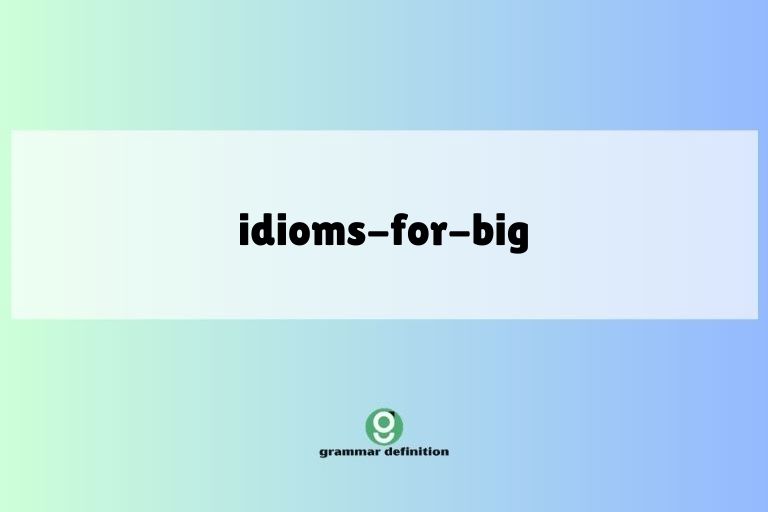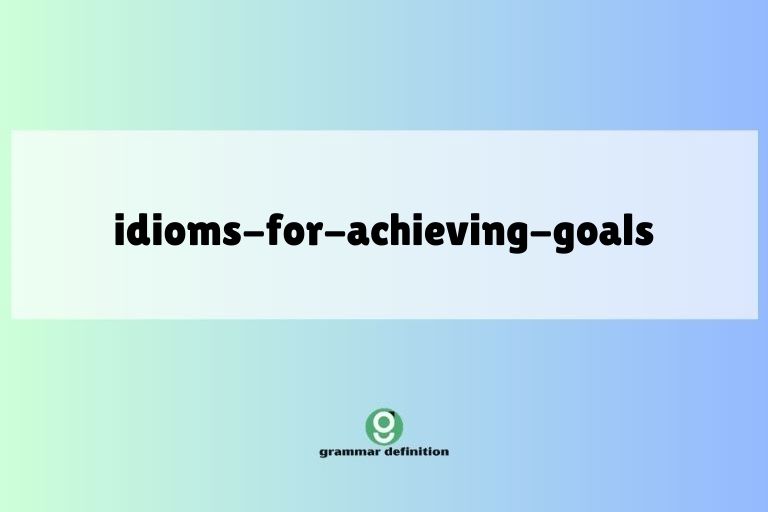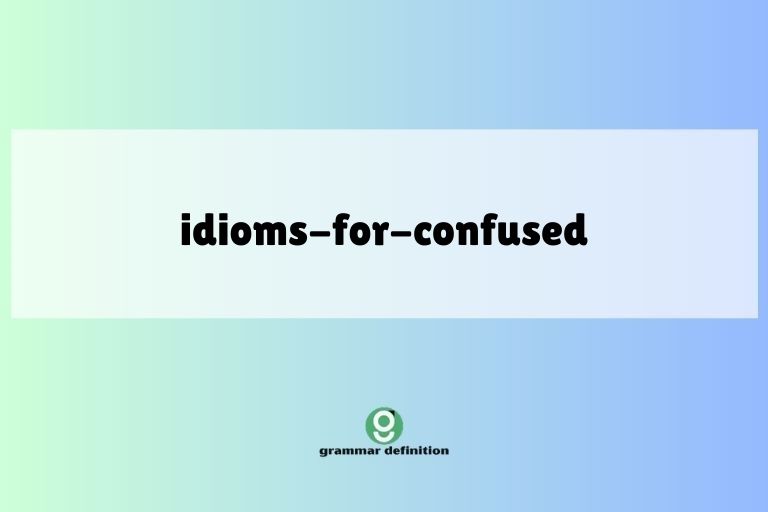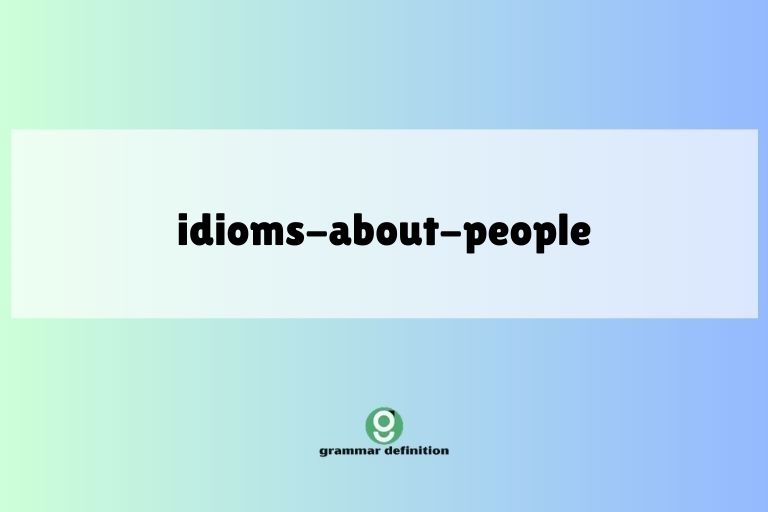Night Idioms: Mastering Figurative Language for Darkness
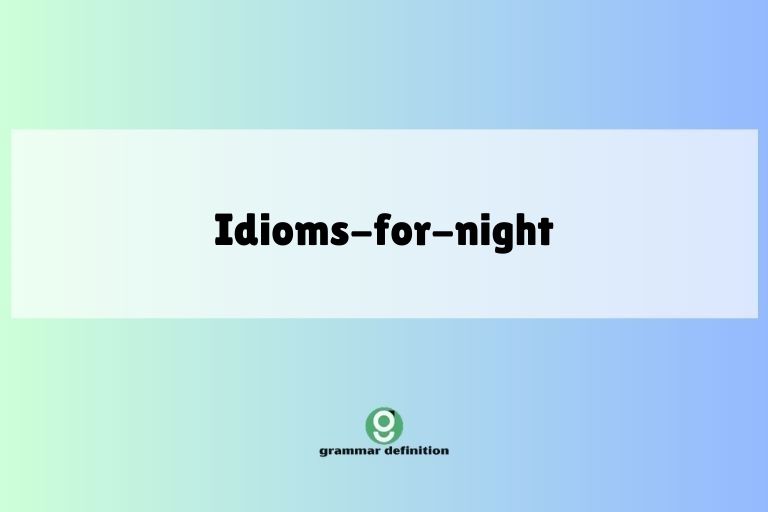
Idioms enrich the English language, adding color and depth to our communication. Understanding idioms related to “night” is particularly useful, as they often evoke strong imagery and emotion.
This article provides a comprehensive guide to night idioms, exploring their meanings, origins, and usage. Whether you’re an English language learner or a native speaker looking to enhance your vocabulary, this article will help you confidently use these expressions in your everyday conversations and writing.
Table of Contents
- Introduction
- Definition of Idioms
- Structural Breakdown of Night Idioms
- Categories of Night Idioms
- Examples of Night Idioms
- Usage Rules for Night Idioms
- Common Mistakes with Night Idioms
- Practice Exercises
- Advanced Topics in Night Idioms
- FAQ About Night Idioms
- Conclusion
Introduction
Idioms are phrases or expressions whose meanings cannot be understood from the literal meanings of the individual words. They add richness and nuance to language, allowing speakers to convey complex ideas and emotions succinctly.
This article focuses on idioms related to “night,” a theme rich in symbolism and cultural associations. Understanding these idioms not only enhances your comprehension of English but also allows you to express yourself more creatively and effectively.
Mastering idioms is a key step towards fluency in English, enabling you to understand and participate in conversations with greater confidence and ease.
Definition of Idioms
An idiom is a phrase or expression where the words used together have a meaning that is different from the dictionary definitions of the individual words. Idioms are a form of figurative language, often used to add color, humor, or emphasis to communication.
They are deeply rooted in culture and history, reflecting the experiences and values of a particular community. Understanding idioms is crucial for mastering a language because their meanings cannot be deduced simply by knowing the definitions of the individual words.
They are often metaphorical and require a deeper understanding of the cultural context in which they are used.
Classification of Idioms
Idioms can be classified based on their structure, meaning, or grammatical function. Some idioms are verb phrases (e.g., “call it a night”), while others are noun phrases (e.g., “night owl”).
Idioms can also be categorized based on their thematic content, such as idioms related to weather, food, or, in this case, night. Understanding the classification of idioms can help learners recognize and use them more effectively.
This also aids in remembering their meanings and contexts.
Function of Idioms
Idioms serve various functions in communication. They can add emphasis, convey emotion, create imagery, or simply make language more interesting.
They also help to establish a sense of shared understanding between speakers, as idioms are often specific to a particular culture or community. Using idioms appropriately can enhance your credibility and make you sound more natural and fluent in English.
Idioms are indispensable for advanced English communication.
Contexts for Using Idioms
The appropriate use of idioms depends heavily on the context. Some idioms are formal and suitable for professional settings, while others are informal and better suited for casual conversations.
It’s important to consider your audience and the overall tone of the communication when choosing an idiom. Misusing an idiom can lead to confusion or even offense.
Therefore, it’s crucial to understand the nuances of each idiom and its appropriate context.
Structural Breakdown of Night Idioms
Night idioms, like all idioms, have a unique structure that contributes to their meaning. They often employ metaphors, similes, or other figures of speech to convey a specific idea related to darkness, nighttime activities, or sleep.
Understanding the structural elements of night idioms can help you interpret their meaning more accurately and use them more effectively.
Metaphorical Elements
Many night idioms rely on metaphors to create vivid imagery. For example, “burning the midnight oil” uses the metaphor of burning oil (fuel for lamps) to represent working late into the night.
The metaphorical connection between the literal image and the intended meaning is key to understanding the idiom. Recognizing these metaphorical elements can make idioms easier to remember and use.
This insight into the imaginative language will help you become more fluent with idioms.
Grammatical Patterns
Night idioms can follow various grammatical patterns, including verb phrases, noun phrases, and prepositional phrases. For example, “night and day” is a noun phrase, while “call it a night” is a verb phrase.
Understanding the grammatical structure of an idiom can help you integrate it correctly into your sentences. Paying attention to these patterns can also help you identify unfamiliar idioms in context.
Cultural References
Some night idioms are rooted in cultural references or historical events. For example, the idiom “a dark night of the soul” has religious origins, referring to a period of spiritual crisis.
Understanding the cultural background of an idiom can provide deeper insight into its meaning and usage. These cultural references can also provide context for the use of the idiom.
Categories of Night Idioms
Night idioms can be categorized based on their thematic content, such as sleep, darkness, late-night activities, or dreams. Categorizing idioms can help learners organize and remember them more effectively.
It also allows for a more focused study of specific aspects of the theme of “night.”
Sleep-Related Idioms
This category includes idioms that relate to sleeping, dreaming, or being unable to sleep. These idioms often reflect the importance of sleep for physical and mental health.
Examples include “tossing and turning,” “sleeping like a log,” and “nighty night.” Understanding these idioms can help you discuss sleep-related topics more fluently.
Darkness-Related Idioms
This category includes idioms that relate to darkness, secrecy, or mystery. These idioms often use darkness as a metaphor for something hidden or unknown.
Examples include “a dark horse,” “in the dead of night,” and “as black as night.” These idioms are useful for describing situations involving secrecy or uncertainty.
Late-Night Activity Idioms
This category includes idioms that relate to activities that typically occur late at night, such as working, partying, or committing crimes. These idioms often reflect the different pace and atmosphere of nighttime.
Examples include “burning the midnight oil,” “night owl,” and “nightcap.” These idioms are helpful for describing various aspects of nightlife and late-night routines.
Dream-Related Idioms
This category includes idioms that relate to dreams, hopes, or aspirations. These idioms often use dreams as a metaphor for something desired or unattainable.
Examples include “sweet dreams,” “nightmare,” and “dream the night away.” These idioms are useful for expressing emotions and aspirations.
Examples of Night Idioms
The following tables provide examples of night idioms, categorized by their thematic content. Each example includes the idiom, its meaning, and a sample sentence.
Sleep-Related Idioms
This table showcases idioms related to sleep, providing context and usage examples.
| Idiom | Meaning | Example Sentence |
|---|---|---|
| Toss and turn | To move around restlessly in bed, especially because of worry or discomfort. | I was tossing and turning all night, unable to get comfortable. |
| Sleep like a log | To sleep very soundly. | After the long hike, I slept like a log. |
| Nighty night | An informal way of saying goodnight. | Nighty night, sleep tight! |
| Not sleep a wink | To not sleep at all. | I didn’t sleep a wink last night because of the noise. |
| Hit the hay | Go to bed. | I’m exhausted, I’m going to hit the hay. |
| Catch some Z’s | To sleep. | I need to catch some Z’s before the big game. |
| In your dreams | Something that is unlikely to happen. | You think you’re going to win the lottery? In your dreams! |
| Sweet dreams | A wish for someone to have pleasant dreams. | Goodnight, sweet dreams! |
| Lose sleep over something | To worry about something. | Don’t lose sleep over the small details. |
| Burn the candle at both ends | To live a hectic life, doing too many things. | He’s been burning the candle at both ends lately, working late and getting up early. |
| Early to bed, early to rise | A proverb suggesting that going to bed early and waking up early is beneficial. | My grandfather always said, “Early to bed, early to rise, makes a man healthy, wealthy, and wise.” |
| Night owl | A person who enjoys staying up late. | She’s a night owl, always working on her projects late into the night. |
| The wee hours | The early hours of the morning. | They stayed up talking until the wee hours. |
| Sleep on it | To postpone a decision until the next day. | Don’t make a decision now, sleep on it. |
| Dream up | To invent or imagine something. | He dreamed up a brilliant plan to save the company. |
| Wide awake | Fully alert and not sleepy. | I’m wide awake even though it’s late. |
| Rest your head | To sleep or relax. | You look tired, rest your head for a while. |
| Nightcap | An alcoholic drink taken before bed. | He always enjoys a nightcap before going to sleep. |
| Out like a light | To fall asleep very quickly. | As soon as his head hit the pillow, he was out like a light. |
| Counting sheep | Trying to fall asleep by imagining and counting sheep. | I couldn’t fall asleep, so I started counting sheep. |
| Dreamland | A place of sleep and dreams. | Time to head off to dreamland. |
| Fast asleep | Sleeping deeply. | The baby was fast asleep in her crib. |
| Doze off | To fall asleep lightly. | I started to doze off during the movie. |
| Nightmare | A disturbing dream. | I had a terrible nightmare last night. |
Darkness-Related Idioms
This table showcases idioms related to darkness, providing context and usage examples.
| Idiom | Meaning | Example Sentence |
|---|---|---|
| A dark horse | A contestant about whom little is known, but who might win. | He’s a dark horse in the election, but he could surprise everyone. |
| In the dead of night | In the middle of the night, when everything is quiet. | The thief broke into the house in the dead of night. |
| As black as night | Completely dark. | The room was as black as night. |
| Pitch black | Extremely dark. | It was pitch black outside, making it difficult to see. |
| Dark night of the soul | A period of spiritual crisis or depression. | He went through a dark night of the soul after losing his job. |
| Keep someone in the dark | To not tell someone something. | They kept me in the dark about their plans. |
| A shot in the dark | A guess or attempt that is unlikely to succeed. | It’s just a shot in the dark, but it’s worth trying. |
| Black sheep | A person who is different from the rest of their family or group. | He’s always been the black sheep of the family. |
| Dark secret | A secret that is unpleasant or shameful. | The family had a dark secret that they kept hidden for years. |
| Black market | An illegal market where goods or services are traded. | They were selling stolen goods on the black market. |
| Blackmail | To extort money from someone by threatening to reveal damaging information. | He was being blackmailed by someone who knew about his past. |
| Black eye | A bruise around the eye. | He got a black eye in the fight. |
| Black list | A list of people or organizations that are disapproved of or are to be punished or boycotted. | The company was blacklisted for violating labor laws. |
| Darken the door | To visit someone’s house (often used negatively). | Don’t you ever darken my door again! |
| Black and white | Clear and straightforward. | The rules are black and white, there’s no room for interpretation. |
| In the black | Having money; not in debt. | The company is finally in the black after years of losses. |
| Paint the town red | Go out and celebrate in a lively way. | They decided to paint the town red after winning the championship. |
| Cloud with no silver lining | A completely negative situation with no positive aspects. | It was a cloud with no silver lining; everything went wrong. |
| Black Friday | The day after Thanksgiving, known for heavy shopping discounts. | We braved the crowds on Black Friday to get some deals. |
| Black tie event | A formal event requiring formal attire. | The gala was a black tie event. |
| Black swan event | An unpredictable event that has severe consequences. | The financial crisis was a black swan event. |
| Black box | A device or system where the inner workings are not understood. | The algorithm is a black box; we don’t know how it makes its decisions. |
| Black spot | A place where something bad often happens. | That intersection is a black spot for traffic accidents. |
| Black look | An angry or hostile expression. | He gave me a black look when I interrupted him. |
Late-Night Activity Idioms
This table showcases idioms related to late-night activities, providing context and usage examples.
| Idiom | Meaning | Example Sentence |
|---|---|---|
| Burning the midnight oil | Working late into the night. | She’s been burning the midnight oil to finish her thesis. |
| Night owl | A person who stays up late. | He’s a night owl and prefers to work late at night. |
| Nightcap | An alcoholic drink taken before bed. | He enjoys a nightcap before going to sleep. |
| After dark | After sunset; when it is dark. | The park is closed after dark. |
| Graveyard shift | A work shift that takes place during the night. | He works the graveyard shift at the hospital. |
| Midnight snack | A small meal eaten late at night. | I often have a midnight snack before bed. |
| Crack of dawn | Very early in the morning. | We have to leave at the crack of dawn. |
| The witching hour | Midnight, often associated with supernatural events. | Strange things always seem to happen around the witching hour. |
| Stay up all night | To remain awake throughout the entire night. | We stayed up all night talking and laughing. |
| Nightlife | The entertainment and social activities available at night. | The city has a vibrant nightlife. |
| Evening star | A planet, usually Venus, that is visible in the evening sky. | The evening star shone brightly in the twilight sky. |
| Night train | A train that runs overnight. | They took the night train to Paris. |
| Night vision | The ability to see in low light conditions. | Some animals have excellent night vision. |
| Night raid | A surprise attack carried out at night. | The soldiers conducted a night raid on the enemy camp. |
| Night watch | A period of time when someone is on duty to guard or protect something. | He took the night watch to protect the ship from pirates. |
| All-nighter | A session of studying or working that lasts all night. | I had to pull an all-nighter to finish the project. |
| The night is young | It’s still early and there’s plenty of time for activities. | Don’t go home yet, the night is young! |
| Late night | Occurring or remaining open until late at night. | They went to a late night diner after the concert. |
| Night market | A street market that operates at night. | We visited the night market and bought some souvenirs. |
| Night school | Classes taken in the evening, usually by adults who work during the day. | She’s attending night school to get her degree. |
| Night blooming | Flowers that open at night. | The night blooming cereus is a beautiful flower. |
| Nightjar | A nocturnal bird. | We heard the call of a nightjar in the woods. |
| Nightshade | A poisonous plant. | Be careful of the nightshade in the garden. |
| Nightgown | A loose dress worn for sleeping. | She put on her nightgown and went to bed. |
Dream-Related Idioms
This table showcases idioms related to dreams, providing context and usage examples.
| Idiom | Meaning | Example Sentence |
|---|---|---|
| Sweet dreams | A wish for someone to have pleasant dreams. | Goodnight, sweet dreams! |
| Nightmare | A disturbing dream. | I had a terrible nightmare last night. |
| Dream the night away | To spend the night dreaming. | She dreamed the night away, lost in her imagination. |
| Pipe dream | An unrealistic hope or plan. | His plans to become a millionaire are just a pipe dream. |
| Dream come true | Something that one has wanted for a long time happening. | Winning the lottery was a dream come true. |
| Dream on | Used to tell someone that what they are hoping for is unlikely to happen. | You think you’re going to get a promotion? Dream on! |
| In your dreams | Used to tell someone that what they are hoping for is very unlikely to happen. | You think she’s going to go out with you? In your dreams! |
| Daydream | To have pleasant thoughts that distract one from reality. | She often daydreams about traveling the world. |
| Living the dream | Enjoying a very good and successful life. | He’s living the dream, traveling the world and getting paid for it. |
| Dream job | The perfect job that one has always wanted. | Working as a chef in a Michelin-starred restaurant is his dream job. |
| Dream up | To invent or imagine something. | He dreamed up a brilliant plan to save the company. |
| Dream boat | An ideal or perfect person. | She’s finally found her dream boat. |
| Dream catcher | A handmade object believed to protect sleeping people from bad dreams. | She hung a dream catcher above her bed. |
| American Dream | The belief that anyone can achieve success and prosperity through hard work. | He came to America to pursue the American Dream. |
| Dream ticket | A combination of people or things that is likely to be successful. | The new management team is a dream ticket for the company. |
| Sacred dream | Dream that holds spiritual significance. | The shaman guided us through our sacred dreams. |
| Follow your dreams | Pursue one’s aspirations and goals. | They always encouraged me to follow my dreams. |
| Shattered dreams | Disappointed hopes and aspirations. | The failed business resulted in shattered dreams. |
| Lost in a dream | Deeply absorbed in one’s thoughts or fantasies. | She was lost in a dream, imagining her future. |
| Dream world | An imaginary or ideal world. | He lives in his own dream world. |
| Dream weaving | Creating or shaping one’s dreams. | They practiced dream weaving to enhance their creativity. |
| Dream analysis | Interpreting the meaning of dreams. | The therapist used dream analysis to understand his subconscious. |
| Dream sequence | A series of events in a dream. | The movie featured a surreal dream sequence. |
| Dream interpretation | The process of assigning meaning to dreams. | Dream interpretation is a complex and subjective field. |
Usage Rules for Night Idioms
Using night idioms correctly requires an understanding of their specific meanings, grammatical structures, and appropriate contexts. Pay attention to these usage rules to avoid common mistakes and communicate effectively.
Contextual Appropriateness
Choose idioms that are appropriate for the context of your communication. Some idioms are formal, while others are informal.
Consider your audience and the overall tone of your message when selecting an idiom. For example, using “nighty night” in a business email would be inappropriate.
Grammatical Correctness
Ensure that you use night idioms correctly within your sentences. Pay attention to verb tenses, subject-verb agreement, and other grammatical rules.
For example, instead of saying “I am sleep like a log,” say “I slept like a log.”
Avoiding Overuse
While idioms can add color to your language, avoid overusing them. Too many idioms in a single conversation or piece of writing can sound unnatural or forced.
Use idioms sparingly and strategically to enhance your communication.
Understanding Nuances
Pay attention to the nuances of each idiom. Some idioms have subtle differences in meaning or connotation.
Make sure you understand these nuances before using an idiom to avoid miscommunication. For example, “a dark horse” implies someone unexpected who might win, not just someone who is unknown.
Common Mistakes with Night Idioms
Learners often make common mistakes when using night idioms. Being aware of these mistakes can help you avoid them and use idioms more accurately.
Literal Interpretation
One common mistake is interpreting idioms literally. Remember that idioms have a figurative meaning that is different from the literal meaning of the individual words.
For example, “burning the midnight oil” does not literally mean burning oil; it means working late into the night.
Misunderstanding Meaning
Another common mistake is misunderstanding the actual meaning of the idiom. This can lead to using the idiom in an inappropriate context or conveying the wrong message.
Always double-check the meaning of an idiom before using it.
Incorrect Grammar
Using incorrect grammar with idioms is another common mistake. Make sure to use the correct verb tenses, subject-verb agreement, and other grammatical rules when using idioms.
For example, saying “I am going to hit the hay yesterday” is grammatically incorrect; the correct sentence is “I hit the hay yesterday.”
Wrong Context
Using an idiom in the wrong context can also lead to miscommunication. Some idioms are more appropriate for formal settings, while others are more appropriate for informal settings.
Choose idioms that are appropriate for your audience and the overall tone of your message.
The following table illustrates some common mistakes and their corrections:
| Incorrect | Correct | Explanation |
|---|---|---|
| She said nighty night in the meeting. | She said goodnight at the meeting. | “Nighty night” is too informal for a business meeting. |
| I am sleep like a log last night. | I slept like a log last night. | Correct verb tense is needed. |
| He is a black horse. | He is a dark horse. | The correct idiom is “dark horse.” |
| They keep me in the light. | They keep me in the dark. | The correct idiom is “keep in the dark.” |
Practice Exercises
Test your knowledge of night idioms with the following practice exercises. Choose the correct idiom to complete each sentence.
Exercise 1: Fill in the Blanks
Complete the following sentences with the correct night idiom from the list below.
Idiom List: burning the midnight oil, night owl, in the dead of night, sweet dreams, a dark horse
| Question | Answer |
|---|---|
| 1. She’s been ___________ to finish her thesis on time. | burning the midnight oil |
| 2. He’s a ___________ and prefers to work late at night. | night owl |
| 3. The thief broke into the house ___________. | in the dead of night |
| 4. Goodnight, ___________! | sweet dreams |
| 5. He’s ___________ in the election, but he could surprise everyone. | a dark horse |
| 6. I had a terrible ___________ last night. | nightmare |
| 7. They decided to ___________ after winning the championship. | paint the town red |
| 8. I need to ___________ before the big game. | catch some Z’s |
| 9. Don’t ___________ the small details. | lose sleep over |
| 10. She’s been ___________ lately, working late and getting up early. | burning the candle at both ends |
Exercise 2: Multiple Choice
Choose the correct meaning of the underlined idiom in each sentence.
| Question | Options | Answer |
|---|---|---|
| 1. He told them to sleep on it before making a decision. | a) go to sleep immediately b) postpone the decision c) make a quick decision | b) postpone the decision |
| 2. She’s been working the graveyard shift at the hospital. | a) day shift b) morning shift c) night shift | c) night shift |
| 3. His plans to become a millionaire are just a pipe dream. | a) realistic plan b) unrealistic hope c) guaranteed success | b) unrealistic hope |
| 4. Don’t you ever darken my door again! | a) visit my house b) paint my door black c) clean my door | a) visit my house |
| 5. They were selling stolen goods on the black market. | a) legal market b) illegal market c) farmers market | b) illegal market |
| 6. She’s attending ___________ to get her degree. | a) day school b) night school c) summer school | b) night school |
| 7. She hung a ___________ above her bed. | a) dream board b) dream catcher c) dream journal | b) dream catcher |
| 8. He’s ___________, traveling the world and getting paid for it. | a) living the drama b) living the dream c) living the lie | b) living the dream |
| 9. The new management team is a ___________ for the company. | a) dream board b) dream team c) dream ticket | c) dream ticket |
| 10. Be careful of the ___________ in the garden. | a) night bloom b) nightshade c) nightjar | b) nightshade |
Advanced Topics in Night Idioms
For advanced learners, exploring the origins and cultural significance of night idioms can provide a deeper understanding of their usage and impact. This section delves into more complex aspects of night idioms.
Etymology of Idioms
Many night idioms have interesting etymological roots that reflect historical practices, beliefs, or events. Researching the origins of these idioms can provide valuable insights into their meanings and cultural significance.
For example, understanding the historical context of “burning the midnight oil” can enhance your appreciation of its metaphorical meaning.
Cultural Variations
Idioms are often specific to a particular culture or region. Night idioms may have different meanings or connotations in different cultures.
Being aware of these cultural variations can help you avoid miscommunication and use idioms more appropriately. For example, an idiom that is common in American English may not be understood or used in British English.
Literary Usage
Night idioms are often used in literature to create vivid imagery, convey emotion, or develop characters. Analyzing the use of night idioms in literary works can enhance your understanding of their artistic and communicative potential.
Authors often use idioms to add depth and nuance to their writing.
FAQ About Night Idioms
Here are some frequently asked questions about night idioms:
Q1: What is the best way to learn idioms?
A: The best way to learn idioms is through consistent exposure and practice. Read widely, listen to native speakers, and actively use idioms in your own conversations and writing.
Flashcards, idiom dictionaries, and online resources can also be helpful tools.
Q2: How can I avoid misusing idioms?
A: To avoid misusing idioms, always double-check their meaning and usage before
using them. Pay attention to the context in which the idiom is used and consider your audience.
If you’re unsure about an idiom, it’s better to use a more straightforward expression.
Q3: Are idioms the same across different English-speaking countries?
A: No, idioms can vary significantly between different English-speaking countries. What is a common idiom in the United States might be unfamiliar or have a different meaning in the United Kingdom, Australia, or Canada.
Be mindful of these regional differences when using idioms.
Q4: How can I find the origins of specific idioms?
A: You can find the origins of specific idioms by consulting etymological dictionaries, idiom dictionaries, or online resources dedicated to the history of language. These resources often provide detailed explanations of the origins and evolution of idioms.
Q5: Why are idioms so important in English?
A: Idioms are important in English because they add color, depth, and nuance to communication. They allow speakers to express complex ideas and emotions succinctly and creatively.
Understanding idioms is crucial for mastering English and communicating effectively with native speakers.
Conclusion
Mastering night idioms can significantly enhance your understanding and use of the English language. By understanding their definitions, structures, and usage rules, you can effectively incorporate these colorful expressions into your conversations and writing.
Remember to practice regularly, pay attention to context, and be mindful of cultural variations. With consistent effort, you’ll be able to confidently use night idioms and enrich your communication skills.



